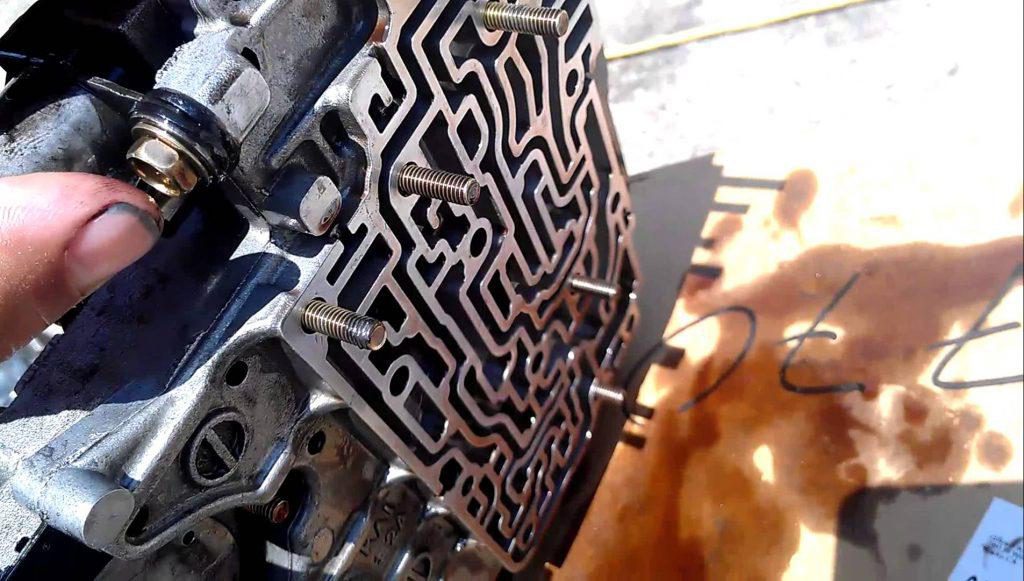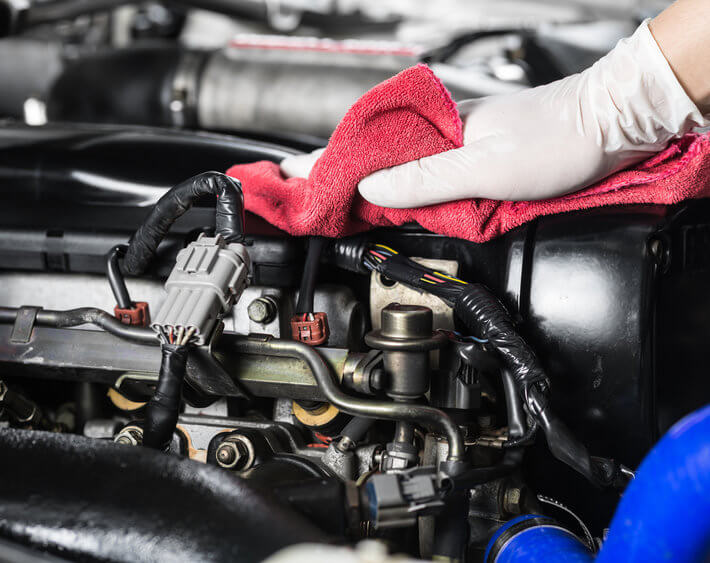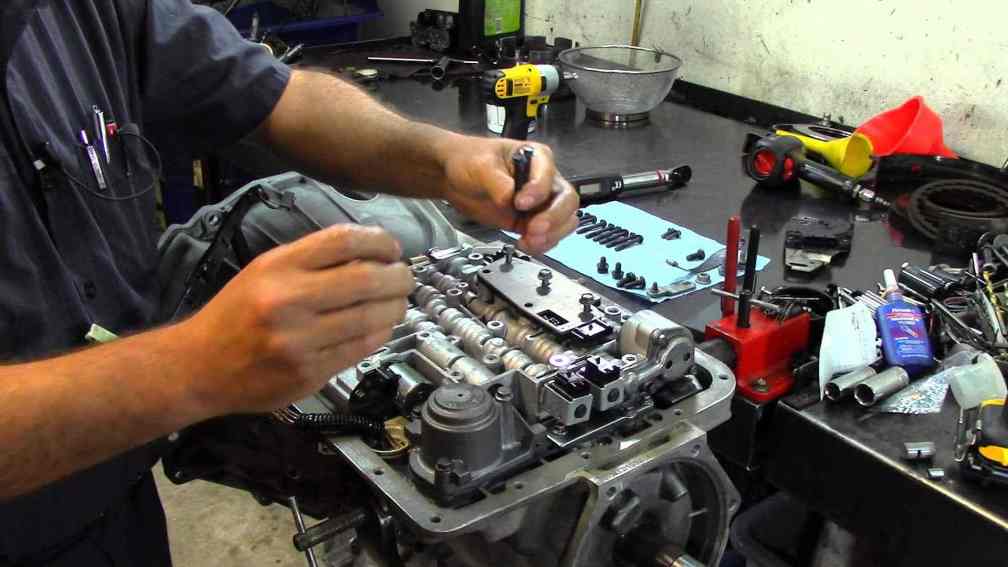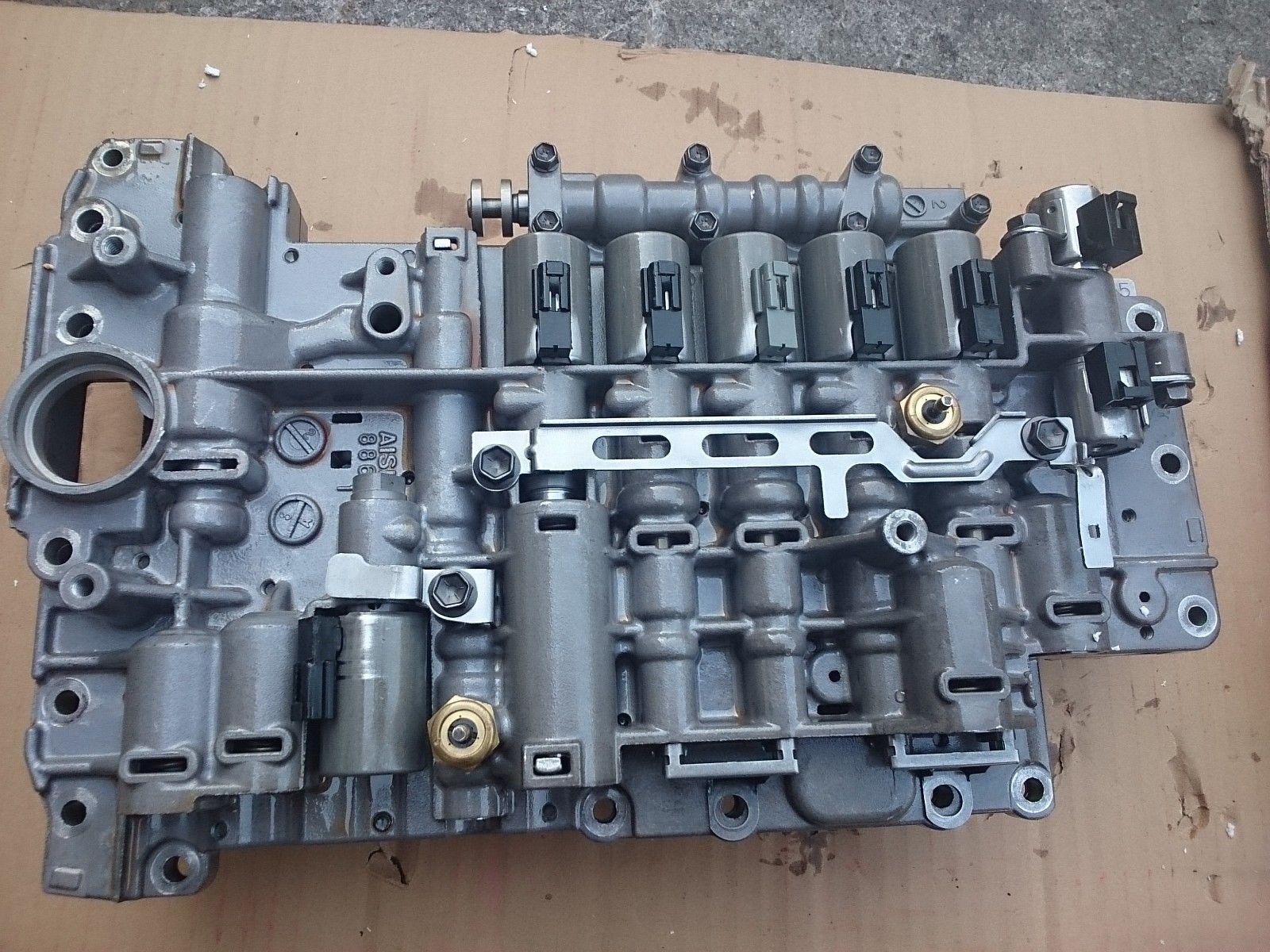When using a car, someone may have ignored some symptoms that they think are not serious. But these may signal that your car could be critical and need you to act as quickly as possible. And the automatic transmission valve body symptoms are not an exception.
In this post, we will discover what is a transmission valve body, an automatic transmission valve body, and the symptoms of bad valve body. Therefore, you can recognize the transmission valve body problems and fix them to maintain the best condition of your vehicle.
Contents
What Is A Transmission Valve Body?
First of all, let’s find out what is a valve body. The valve body is the control center of the automatic transmission. It includes a maze of channels and passages that guide hydraulic fluid to the various valves.
Then they activate the appropriate clutch pack or band servo for each driving situation to switch smoothly to the appropriate gear. Like a hydraulic fluid hose, each of those channels performs, somehow, the same job.
It was much easier to mill out passages in a metal block instead of making a hundred horses run all over the place, thus keeping everything tidy as well as more reliable.
Each of the many valves has a particular role in the valve body and has a name for that feature. The most important part of the valve body is the manual valve. Connected to the gear stick handle, it instructs the right passage for hydraulic fluid to pass through.
Recently, the modern automatic transmission valve body has sensors to monitor the speed, brake pedal position, throttle position, and engine load to perform a soft and firm gear shift. The sensors send vital information to the onboard engine management computer.

It further directs the electrically controlled solenoid that redirects the hydraulic fluid to the right clutch pack. Therefore, it will ensure a soft and seamless change between gears.
Now that you know about the auto transmission valve body, it is time to know transmission valve body symptoms.
Failure Symptoms Of Automatic Transmission Valve Body
Although modern automatic gearboxes are strong and enduring, the overall reliability takes effect from the added complex structure of these systems. Therefore, the sooner we notice the abnormal signals of the engine, the longer we can maintain the use of it.
There are a few valve body transmission symptoms that keep you aware of the failure activity of the engine. Most of them are quite noticeable.
It is recommended that you should fix these problems as soon as possible. Then, your driving ability will be protected and gear changing will be smooth as usual.
Here are the automatic transmission valve body symptoms that you must not ignore
1. Knocking Noise
One symptom of a bad valve body is strange knocking noises. You will notice the clunking or knocking noise coming from the gearbox when you brake, change the gears, or when accelerating.
Chances are that you may hear some awkward noises when putting the car in reverse and driving backward. The reason for this can be anything from inappropriate oil pressure to actual physical damage to the transmission valve body.
Anyways, as soon as you hear strange sounds from the gearbox you should get your car a check.

2. Gears In Troublesome
Late gear shifts or general issues with gear changes are common transmission valve body symptoms. When the gearbox prepares to change gears, it will drop the RPM slightly.
A bad transmission valve body probably makes the RPM spike for a moment. Whenever you experience these problems, contact your mechanic for a check immediately

3. Difficulty In Downshift
Similar to shifting gears, you might have difficulty downshifting as one of the symptoms of a bad valve body.
This explains that hydraulic fluid is unable to enter the valve body transmission properly. Once this starts happening, the gears will not function properly, thus degrading the performance of the vehicle.
4. Delay In Shifting
Are you facing problems while changing your gears to reverse or drive? If you have ever had a long pause between going in reverse and being able to slide into drive, then you understand the pain of a delayed shift.
Most often, it is because of the transmission valve body that is working improperly. Thus, the shifting of the transmission experiences a great delay. Be ready! Due to this, it may cause the car to be stuck in neutral.
SEE MORE:
- Reasons For Transmission Shifting Hard From 1st To 2nd Gear
- Where Is Valve Train Noise Coming From And Ways To Fix It?
Replacements
When it comes to replacing a transmission valve body, the cost is something to take into account, as it will depend on the labor and model of your vehicle.
An average transmission valve body will cost between $200 to $500. In addition, the labor costs tend to be quite intense as the process of replacing can take around 2 to 4 hours to finish.
It is important to note that the hourly rate of a mechanic costs between $60 to $100. So you will pay between $120 and $400 for labor costs before taxes and fees.
Therefore, the total valve body replacement cost will vary between $320 and $900.

If there are transmission valve body symptoms that are serious, you will need to take into consideration if you need to replace the whole valve body or fix the transmission system.
Tips For A Long-Lasting Valve Body
Because the cost of either replacing or fixing the automatic transmission valve body is relatively high. You should take care of the vehicle daily and keep track of the car’s condition.
The top advice to prevent transmission valve body symptoms is proper maintenance. Frequent maintenance appointments will let you know if there is any strange condition of your vehicle to fix it quickly and prevent further damage.
Also, you should use good transmission oil. Because using low-quality oils will lead to sub-par lubrication and cooling of the whole body.
Later, that will make the key components’ lifespan shorter. In terms of economics, it will be cheaper if you use good oil than to rebuild the gearbox.
Last but not least, the easiest way is to always check the warning lights on your vehicle’s dashboard. Nowadays, cars are equipped with smart and clear dashboards for you to notice any abnormal behavior inside them.
But in case you do not have them, a frequent maintenance check is always the best option to prevent transmission valve body symptoms or further damage to your car.

FAQs On Transmission Valve Body
-
What is the valve body repair cost?
According to the American Automobile Association (AAA), the typical cost of a complete gearbox valve body replacement is between $300 and $1000.
In addition, if this part has any less severe issue, the typical cost to repair on most common small vehicles and sedans will be between $250 and $500.
-
Is it possible to repair the valve body without removing the transmission?
It is rather simple to replace some valve bodies, especially when the transmission is still in the car.
-
Is it possible to clean the transmission valve body?
To eliminate mineral build-up, gently scrape the interior walls of the valve body using a nylon bristle brush.
-
What is the optimal way to clean a transmission valve body?
The best method is to disassemble everything and thoroughly clean the valves and bores using acetone and nylon brushes.
Sum Up
As mentioned above, the detection of a bad transmission valve body is relatively easy even with or without the help of an engine management computer. The best tip is to never ignore any unusual signs in your vehicle.
Keep up with your pages for more useful information and maintenance tips that will help you know your car better.




So good to know all your technics and i can say thank you for sharing that…
My car is knocking while engaging gear no 3,what can be the problem?
my car had the knco sound i wud hear it more when i park and switch off the car. yesterday it was shaking terribly as if it wanted to change gears coz it had been travelling a while on first gear Nissan Tiida CVT and then struggled going uphill and when i eventually got her moving she stopped on the next inclined plane. now the car revs and all i put it on DRIVE smae thing reving but not moving . reverse same thing …
as its reving but not moving … diagnosis had shown earlier that we need to change stepper motor and tcm sensor
Hi Tsukasa,
Thanks for sharing valuable information. Could you please suggest any good books to refer for automatic transmission valve body design.
Thanks!
which censor that needs to be replaced help pls
i have a mazda mpv 2003, the gear had been jerking at 2RPM since purchase as a used imported vehicle, but it started showing O/D off light flashing some days ago , and the transmission is behaving funny, experiencing slowdown at 2& 3 RPM along the jerking which is more pronounced now , even after changing the fluid. Codes PO328 and POO31 HO2S, but a car electrician inspected it thoroughly and said one fuse in the valve body of the transaxle is bad saying its better to get a new transaxle.What do u advise?
I have a 2015 Honda Accord which I just purchased from an auction. The car does move forward when the gear is put on ‘D’ or ‘S’, but would not go backwards when the gear is put on ‘R’ for reverse. What is the likely problem? How can the gear Reverse problem be fixed without changing the entire automatic transmission. Will changing the ‘Valve Body’ of the transmission solve the problem?
Nissan notr 2009 dont change from 1st into other gears pls help
hi I have 2001 Toyota camry it has no kickdown and puls of in second gear please help
Per technicians, I just had to replace the Automatic Transmission Valve Body in a 2016 Nissan Maxima (30,000 miles – under warranty). There was occasional slippage during gear shifting. The real concern is replacing the Automatic Transmission Valve Body in my 2018 GMC Canyon (500 miles). Vehicle failed to start, then started and seemed to run only in first gear. Purchased 3 weeks ago, 500 miles total, and in the shop still since DEC 8. Very concerning!
Hi p1716, p1754, p0748, U1000 these are my codes. My 350z Nissan 2004 from 10/03 automatic transmission. The TCM is a 2nd generation or type 2 TCM it is hard shifting from 2nd to 3rd gear.
Hey, I have a 1998 Galant automatic! Just as I start driving in D, the car revs. However if I start driving in the lowest gear it does not. Also while in the lower gear, it take forever to feel the car change over, what i have to do is change the gear from 1to2 to3 toD… this doesnt happen onces the car gets hot. It changes fine after… any ideas to whatvis wring?
Hi
I have 2006 lexus gs300 RWD, I live in a hot weather place most of the year.
My problem is when the car is still cold (didn’t reach operating temp.) I notice a delay of shifting in first and second gears but once it reaches the operating temp. everything is fine!
what do you think could be the issue?!
Thanks
I notice a delay of shifting in third and fourth gears. Toyata Carmry 2011. everything is fine!
Hi,
I have a 2008 Nissan Altima 2.5S, I noticed it jerks when I shifts from park to drive or reverse, I checked the transmission fluid and it’s alright.
A week later , I wanted to drive out and discovered the car could hardly move when in drive and reverse, the movement was very slow and this made it undrivable so I had to leave it.i did a diagnostic with my obd tool and I got this two codes P0840 and P0845
Please what could be the problem?
Thank you .